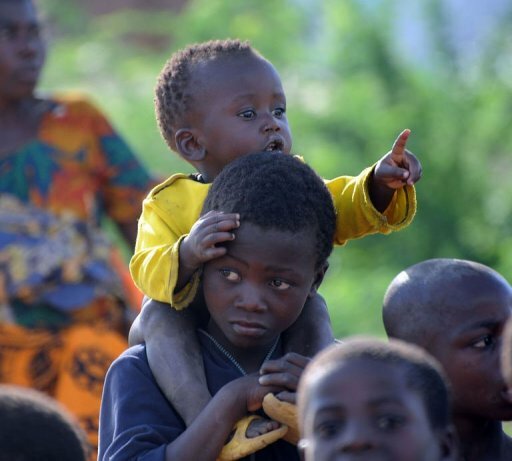 Bartamaha (Kakuma):- The 75,000 refugees camped under the burning sun on a rocky plain in Kenya’s arid northwest represent a cross-section of east Africa’s various wars and crises.
Bartamaha (Kakuma):- The 75,000 refugees camped under the burning sun on a rocky plain in Kenya’s arid northwest represent a cross-section of east Africa’s various wars and crises.
From Somalia, south Sudan, Darfur, Ethiopia and Rwanda, all have made their way to the town of Kakuma — close to nowhere except the border with Sudan — bringing various traditions and styles together in relative harmony.
“It’s probably the most cosmopolitan refugee camp in the world,” says Youssouf Hassan, an official with the UN refugee agency.
An East African Tower of Babel, Kakuma is like an immense beehive, a labyrinth of dusty alleys where plump Congolese in their Sunday best mingle with lanky Dinkas from southern Sudan, their ebony skin marked with ritual scars.
They all live side-by-side with the local Turkana tribe, who are almost as poor as the refugees.
Turkana men, who wrap fabric around themselves to form a mid-thigh skirt and carry sticks and wooden headrests, visit the camp to exchange goat carcasses for UN refugee agency rations.
Turkana women, with Mohican hairstyles and heavy strings of coloured beads around their necks, sell sacks of charcoal to the refugees under the disdainful gaze of Somali traders sitting in front of shops stocked with cheap Chinese imports.
Fourteen nationalities live at Kakuma, which was established in 1992 to shelter south Sudanese fleeing war but later grew to accommodate people from other tragedies.
Today Somalis are in the majority, representing 56 percent of the camp’s inhabitants, way ahead of the south Sudanese (30 percent), many of whom have gone back home with the return of peace.
The different nationalities have distinctive living arrangements: each Somali family has set up camp in a separate spot, whereas several Sudanese families pile in together behind thorn hedges.
Burundians and Congolese live in mini-villages made of mud huts, as they would in their own countries.
“We all live like colleagues, we all get on well like good neighbours,” says Byamungu Majimba, who fled the mountains of South Kivu in the Democratic Republic of Congo “to escape from a tough situation”.
Mohammed Kassim of the UN refugee agency agrees that the different groups “coexist very well”. “What problems there are are caused by people living at such close quarters,” he says.
“Tensions are often concentrated around water points,” adds one of the agency’s Kenyan staffers.
Said Abdi Salat, who works for a local nongovernment organisation, says conflicts between the various communities were common until 2007. “But the situation improved after a lot of south Sudanese left,” he says.
“Nowadays it’s mainly domestic issues, that we try to resolve at community level.”
Sometimes tensions flare within the same community, for example between the Hawiye and the Darod, two Somali clans traditionally pitted one against the other.
But the main source of insecurity is periodic night-time raids by armed local Turkana to loot homes inside the camp.
“What violent incidents there are, are isolated cases,” says Marcel, a Burundian who last May fled what he calls the “dictatorship” in his country and only gives one name.
For him the hardest thing is coping with cramped camp life, with refugees only allowed to cross the perimeter with the permission of Kenyan authorities.
“We’re like prisoners and we’re short of everything,” he complains. “There are the thorns, the scorpions, and then the Turkana who will finish you off if you set foot outside the camp.”
Refugees from smaller groups, like the Burundians, Congolese, Ethiopians and Rwandans, also grumble about losing out to the larger, more powerful ones.
“The Somalis and the Sudanese have the best of it,” says Marcel. “The Somalis in particular control the camp, you know — they’ve been here for such a long time.”
“With their Kenyan Somali brothers behind them, they can move mountains,” agrees Tusa Mohamed, a lanky, copper-skinned leader of the Oromo people from Ethiopia.
“But the basic rule is if you pay, you can get everything you want. Our problem here is not those who live next to us but rather how to eat and live decently.”
——————————————
Source:- AFP.



